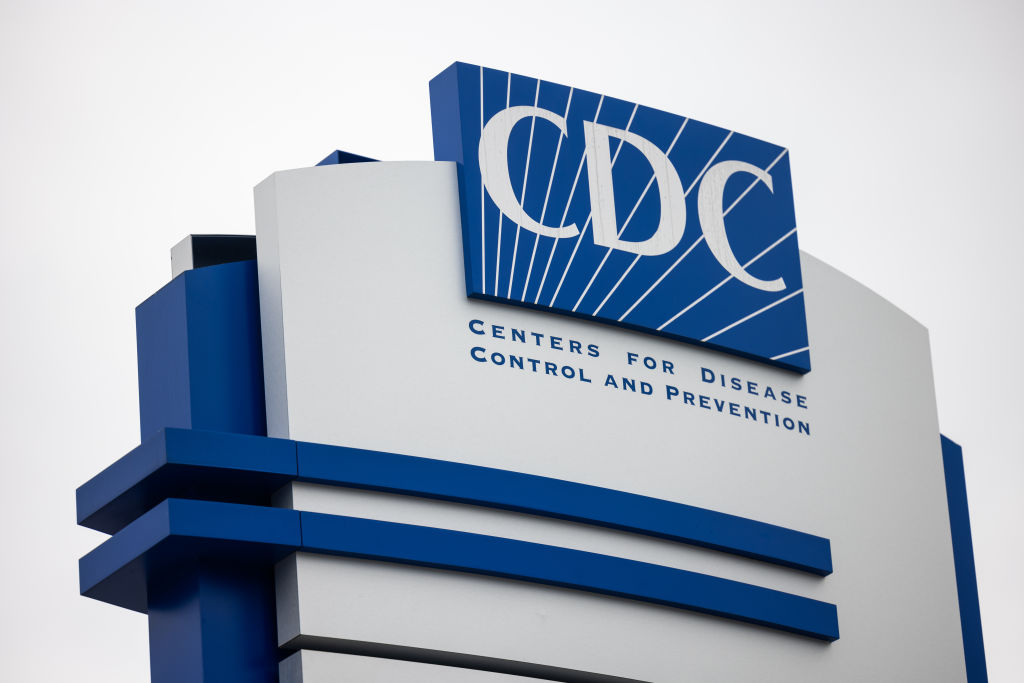Study finds that the majority of Americans are not exercising enough


A free daily email with the biggest news stories of the day – and the best features from TheWeek.com
You are now subscribed
Your newsletter sign-up was successful
A new report by the Centers for Disease Control and Prevention has found that only 28 percent of Americans are meeting the recommended physical activity guidelines, writes Forbes. The CDC recommends that adults 18 and over do 150 minutes of moderate-intensity physical activity and two days of muscle-strengthening activity per week.
Moderate exercise means any workout that increases heart rate and muscle strengthening entails working muscles harder than usual. The likelihood of a person meeting the activity goal also varies greatly based on demographics. Those living in the western U.S. are more likely to be hitting both goals, while those living in the South are least likely, ABC News reports.
People living in cities and metropolitan areas also have a higher percentage of adults meeting the requirements at 28 percent, while only 16 percent of adults outside of cities are meeting the goals, reports Forbes. While these numbers are low, the CDC notes that the data for the study was collected in 2020, when the pandemic likely prompted lower-than-average physical activity.
The Week
Escape your echo chamber. Get the facts behind the news, plus analysis from multiple perspectives.

Sign up for The Week's Free Newsletters
From our morning news briefing to a weekly Good News Newsletter, get the best of The Week delivered directly to your inbox.
From our morning news briefing to a weekly Good News Newsletter, get the best of The Week delivered directly to your inbox.
However, "a national paradigm shift is needed," according to the authors of the study, especially since approximately half of American adults have at least one chronic illness that could be prevented by regular exercise, continues Forbes. For this reason, the CDC launched its Active People, Healthy Nation program to encourage Americans to become more active.
"This body of…evidence is important for understanding rural-urban disparities in physical activity and tracking the attainment of national objectives; however, it is only the first step," wrote the report authors.
A free daily email with the biggest news stories of the day – and the best features from TheWeek.com
Devika Rao has worked as a staff writer at The Week since 2022, covering science, the environment, climate and business. She previously worked as a policy associate for a nonprofit organization advocating for environmental action from a business perspective.
-
 Quentin Deranque: a student’s death energizes the French far right
Quentin Deranque: a student’s death energizes the French far rightIN THE SPOTLIGHT Reactions to the violent killing of an ultra-conservative activist offer a glimpse at the culture wars roiling France ahead of next year’s elections.
-
 Secured vs. unsecured loans: how do they differ and which is better?
Secured vs. unsecured loans: how do they differ and which is better?the explainer They are distinguished by the level of risk and the inclusion of collateral
-
 ‘States that set ambitious climate targets are already feeling the tension’
‘States that set ambitious climate targets are already feeling the tension’Instant Opinion Opinion, comment and editorials of the day
-
 Sepsis ‘breakthrough’: the world’s first targeted treatment?
Sepsis ‘breakthrough’: the world’s first targeted treatment?The Explainer New drug could reverse effects of sepsis, rather than trying to treat infection with antibiotics
-
 Scientists are worried about amoebas
Scientists are worried about amoebasUnder the radar Small and very mighty
-
 Metal-based compounds may be the future of antibiotics
Metal-based compounds may be the future of antibioticsUnder the radar Robots can help develop them
-
 A Nipah virus outbreak in India has brought back Covid-era surveillance
A Nipah virus outbreak in India has brought back Covid-era surveillanceUnder the radar The disease can spread through animals and humans
-
 Trump HHS slashes advised child vaccinations
Trump HHS slashes advised child vaccinationsSpeed Read In a widely condemned move, the CDC will now recommend that children get vaccinated against 11 communicable diseases, not 17
-
 Deaths of children under 5 have gone up for the first time this century
Deaths of children under 5 have gone up for the first time this centuryUnder the radar Poor funding is the culprit
-
 A fentanyl vaccine may be on the horizon
A fentanyl vaccine may be on the horizonUnder the radar Taking a serious jab at the opioid epidemic
-
 Health: Will Kennedy dismantle U.S. immunization policy?
Health: Will Kennedy dismantle U.S. immunization policy?Feature ‘America’s vaccine playbook is being rewritten by people who don’t believe in them’
